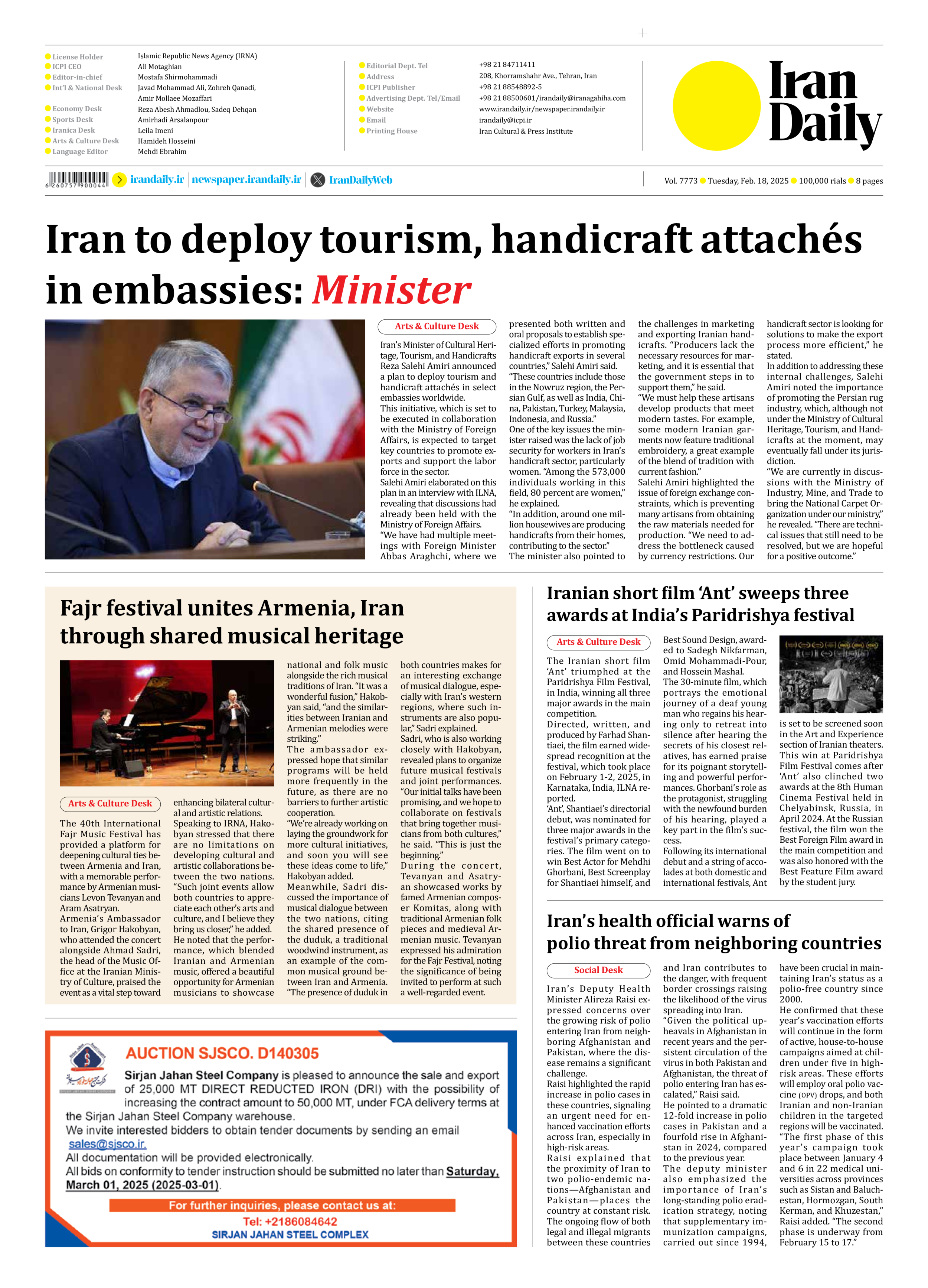
Iran to deploy tourism, handicraft attachés in embassies: Minister
Iran’s Minister of Cultural Heritage, Tourism, and Handicrafts Reza Salehi Amiri announced a plan to deploy tourism and handicraft attachés in select embassies worldwide.
This initiative, which is set to be executed in collaboration with the Ministry of Foreign Affairs, is expected to target key countries to promote exports and support the labor force in the sector.
Salehi Amiri elaborated on this plan in an interview with ILNA, revealing that discussions had already been held with the Ministry of Foreign Affairs.
“We have had multiple meetings with Foreign Minister Abbas Araghchi, where we presented both written and oral proposals to establish specialized efforts in promoting handicraft exports in several countries,” Salehi Amiri said.
“These countries include those in the Nowruz region, the Persian Gulf, as well as India, China, Pakistan, Turkey, Malaysia, Indonesia, and Russia.”
One of the key issues the minister raised was the lack of job security for workers in Iran’s handicraft sector, particularly women. “Among the 573,000 individuals working in this field, 80 percent are women,” he explained.
“In addition, around one million housewives are producing handicrafts from their homes, contributing to the sector.”
The minister also pointed to the challenges in marketing and exporting Iranian handicrafts. “Producers lack the necessary resources for marketing, and it is essential that the government steps in to support them,” he said.
“We must help these artisans develop products that meet modern tastes. For example, some modern Iranian garments now feature traditional embroidery, a great example of the blend of tradition with current fashion.”
Salehi Amiri highlighted the issue of foreign exchange constraints, which is preventing many artisans from obtaining the raw materials needed for production. “We need to address the bottleneck caused by currency restrictions. Our handicraft sector is looking for solutions to make the export process more efficient,” he stated.
In addition to addressing these internal challenges, Salehi Amiri noted the importance of promoting the Persian rug industry, which, although not under the Ministry of Cultural Heritage, Tourism, and Handicrafts at the moment, may eventually fall under its jurisdiction.
“We are currently in discussions with the Ministry of Industry, Mine, and Trade to bring the National Carpet Organization under our ministry,” he revealed. “There are technical issues that still need to be resolved, but we are hopeful for a positive outcome.”







